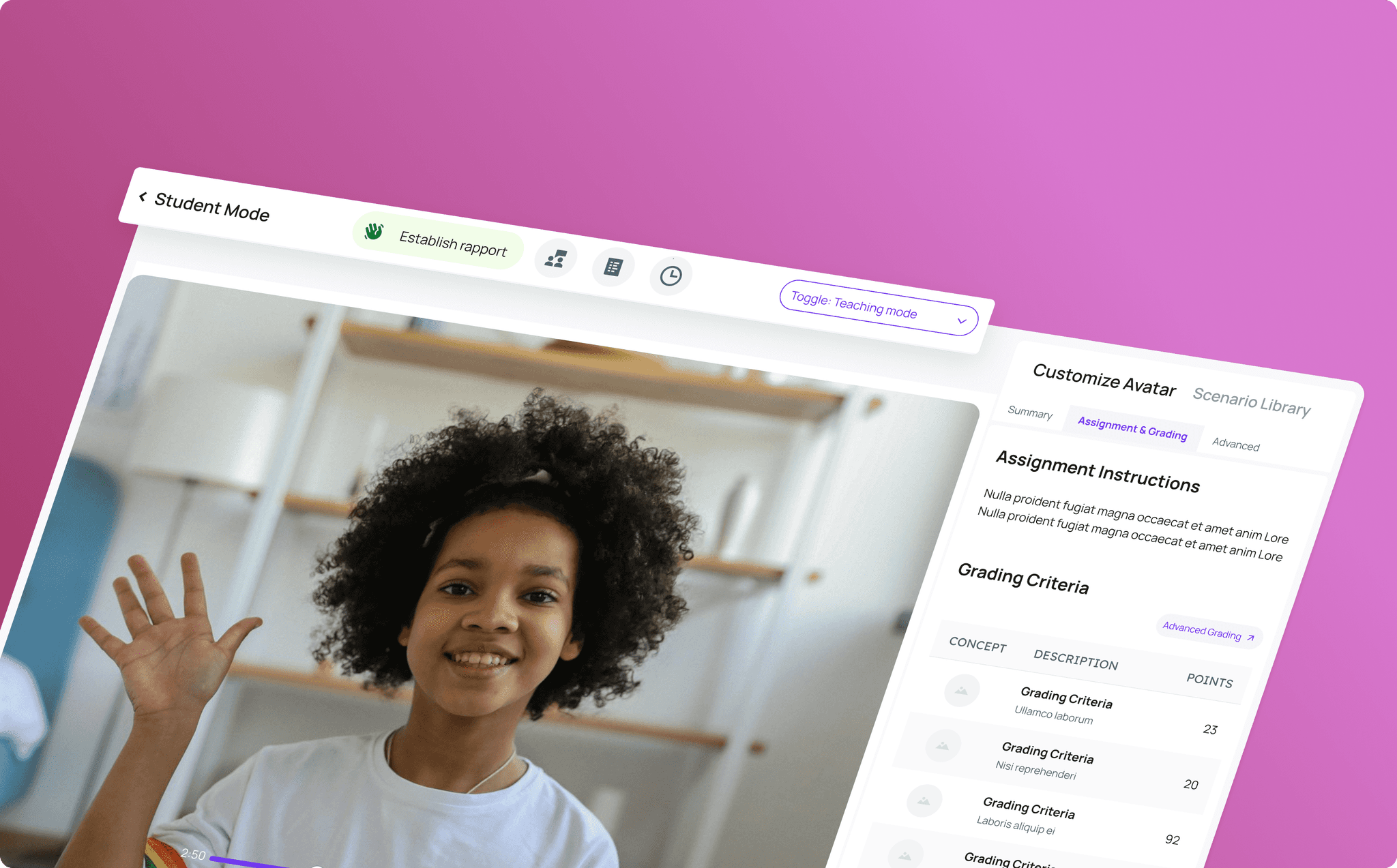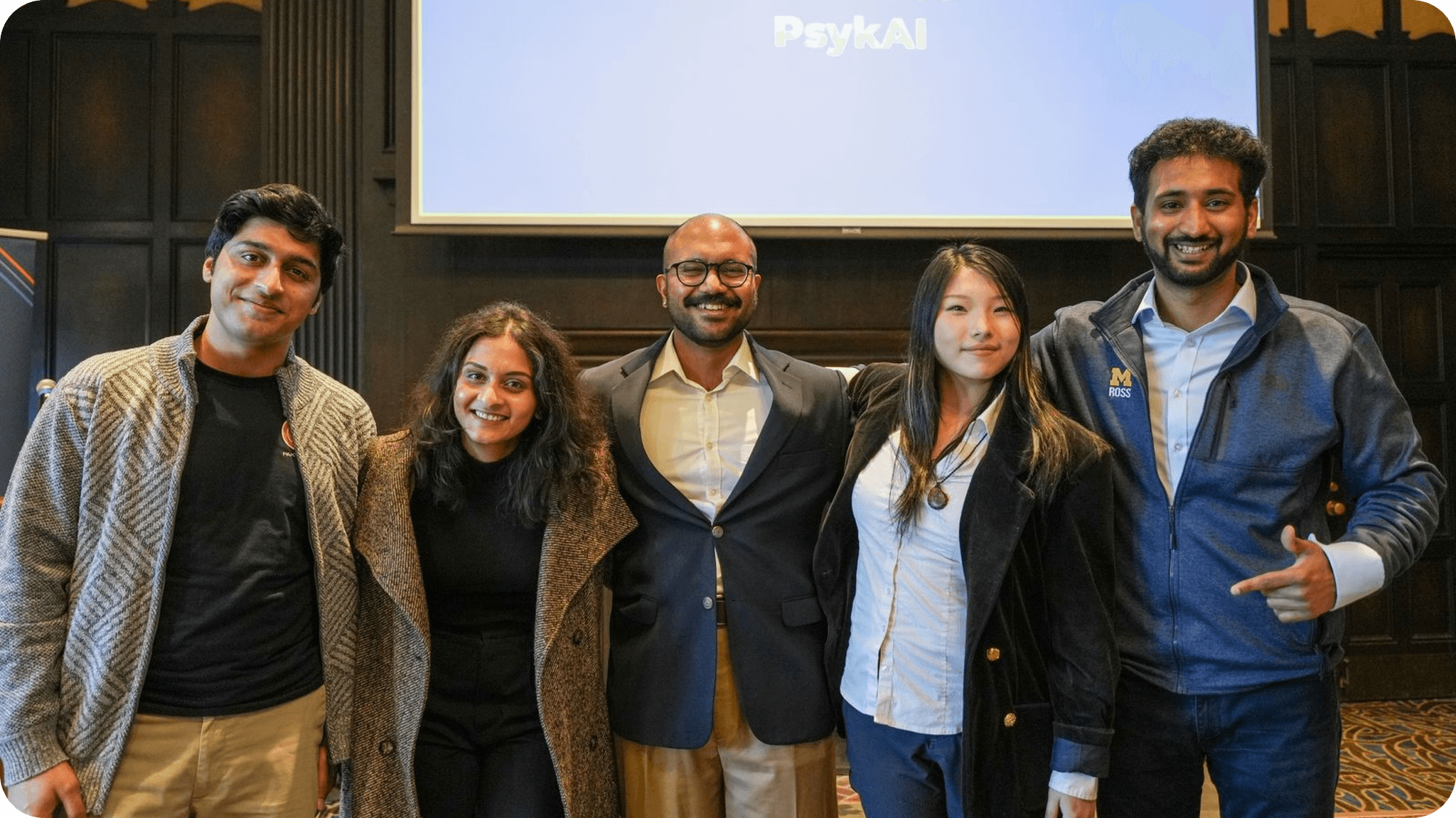
Psyk AI: Gen AI Scenario Based training for the next generation of therapists
The TLDR
The Challenge
Psyk AI is a multimodal AI conversational agent platform project, designed to help student therapist practice DEI-based interventions.
My Role
Co-founder, User Research and Design (me)
1 Co-founder, Product Manager
1 Co-founder, Privacy Research and Design
1 Business Intelligence specialist
2 Software Engineers
The Process
Needs analysis
Competitor analysis
Expert interviews
Prototype 1
Go-to-market strategy development
Design & Feedback (6 rounds)
AI interface MVP
Competition
The Impact
Won 2nd/60 teams at Gen AI competition.
Won 2nd in University of Michigan's Scientific annual poster competition.
Invited to present to the prestigious Scottsdale Institute's audience.
Problem
Finding Care as People of color (POC) is incredibly difficult
Finding culturally competent mental healthcare remains a significant challenge for People of Color. Our team members experienced this firsthand - therapists often lack the training to effectively treat POC-specific issues, leading to substandard care and poor outcomes.
Technology & Context
Finding Care as People of color (POC) is incredibly difficult
Recent advances in generative AI have enabled:
Scalable medical training simulations
Realistic conversation modeling
Customizable learning scenarios
Safe practice environments
Solution
An education platform that uses Gen AI to create interactive Scenario Based Training (SBT) exercises to build Multicultural Competence.
Our platform lets therapy students practice with AI-generated clients representing diverse backgrounds and situations. Key features:
Live simulation feedback
Customizable assessment criteria
Interactive transcripts
Diverse avatar options
Process
We talked to a lot of experts, built an MVP, pivoted based on expert feedback, and
Process
Month 1: Concept validation
Month 2: Expert interviews
Month 3: Final development and presentation
Version 1
Our first idea was an aI transcriber and assistant for therapists
Initially conceived as an AI copilot for practicing therapists, offering live transcription and sentiment analysis during actual therapy sessions.
Pivot
Wrong target audience, HIPAA/consent barriers &
Missing the core problem
When we showed our MVP, we received several pieces of key feedback that forces us back to the drawing board:
Senior therapists don’t need a copilot - they already know how to do their job
A copilot does not help prevent POC from experiencing substandard care
Features
Simulating video-chatting to minimize the gap between practice & application.
The main Psyk AI video chat interface has:
Real-time interaction with AI-generated clients
Transparent grading criteria
Facial and vocal expression recognition
Live feedback on body language
Features
Bridging gen AI agents and existing course curriculums
Our assessment system is designed to use existing assignments, while adding:
Video chapters, avatar script, and user input, all validated against the grading criteria.
Customizable grading rubrics.
Quizes/tools
Progress tracking and performance metrics
Features
Use blunt or precise prompting to script scenarios tailored to strengthen student weaknesses
Users can prompt diverse client backgrounds, and scenarios to ensure students gain experience with a wide range of contexts:
- Diverse avatar templates
- Adjustable client scenarios scenes
- Patient background variations
- Modifiable client 'agreeableness'

What I learned
V1 Launch: Strong Product-Market Validation, 12.5% Usability Gains, and Cross-Team Research Repository
Product Market Fit
Validated & measured core PMF via:
“How would you feel if you could no longer use Kastane” = 2% → 15% increase in users who would be disappointed.
MOM Test interviews
Usability Issues
Resolved 8-12 usability heuristic violations per screen.
Improved usability test metrics by 12.5%.
Collaborating to ensure Product Delivery
Collaborated with research, design and technical teams to deliver V1 in 8 months.
Improving processes and Talent
Established evergreen research repository with 240 validated entries.
Delivered 6-12 month feature roadmap.













